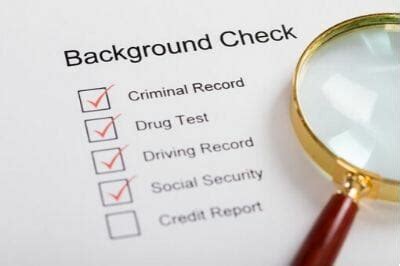Employment Background Checks: What You Need To Know

When it comes to hiring new employees, conducting background checks is becoming increasingly common. This process can help employers make informed decisions and ensure they are hiring qualified candidates who are a good fit for their organization. However, there are many factors to consider when conducting these checks, including legal requirements, privacy concerns, and best practices. In this article, we will explore everything you need to know about employment background checks.
What Are Employment Background Checks?
Employment background checks are a process by which an employer investigates an individual’s history to determine their suitability for a job. These checks may include criminal background checks, credit checks, education and employment verification, reference checks, and more. The goal is to ensure that the candidate has the necessary skills, qualifications, and character traits to perform the job effectively.
Why Are Employment Background Checks Important?
Employment background checks are important for several reasons:
- Ensuring workplace safety: Criminal background checks can help identify potential red flags or criminal activity that could put other employees or customers at risk.
- Protecting company assets: Credit checks can help identify individuals who may be at risk of fraud or financial misconduct.
- Ensuring compliance: Certain industries or positions may require specific background checks to comply with legal regulations.
- Verifying qualifications: Education and employment verification can help ensure that a candidate has the necessary qualifications and experience for the job.
What Are the Legal Requirements for Employment Background Checks?
Employment background checks are subject to various legal requirements, including compliance with federal and state laws such as the Fair Credit Reporting Act (FCRA) and Title VII of the Civil Rights Act. Employers must also obtain written consent from the candidate before conducting any background checks and provide them with a copy of the report if adverse action is taken based on the results.
What Types of Employment Background Checks Are Available?
There are several types of employment background checks available, including:
- Criminal background checks: These checks search for any criminal history, including misdemeanors and felonies.
- Credit checks: These checks examine an individual’s credit history and can help identify financial red flags.
- Education and employment verification: These checks verify an individual’s education and employment history.
- Reference checks: These checks involve contacting a candidate’s references to verify their character and performance.
- Drug testing: These tests screen for drug use and can help identify individuals who may not be suitable for certain positions.
What Are Best Practices for Conducting Employment Background Checks?
When conducting employment background checks, it’s important to follow best practices to ensure compliance and protect the privacy of candidates. These practices include:
- Obtaining written consent from candidates before conducting any background checks
- Using a reputable background screening company
- Ensuring that the information obtained is relevant to the job in question
- Complying with all legal requirements, including the FCRA and state laws
- Providing candidates with a copy of the background check report if adverse action is taken based on the results
- Protecting the confidentiality of the information obtained
What Are the Pros and Cons of Employment Background Checks?
Employment background checks can provide many benefits, including:
- Reduced risk of workplace accidents or misconduct
- Better quality of hires
- Protecting company assets and reputation
- Ensuring compliance with legal regulations
However, there are also some potential downsides to consider, including:
- Cost: Conducting background checks can be expensive, particularly if multiple types of checks are required.
- Privacy concerns: Candidates may be uncomfortable with the level of scrutiny involved in background checks.
- False positives: Background checks are not foolproof and may sometimes result in false positives, which can unfairly harm a candidate’s chances of employment.
Conclusion
Employment background checks are an important part of the hiring process, but they must be conducted carefully and in accordance with legal requirements. By following best practices and using reputable screening companies, employers can ensure that they are making informed hiring decisions and protecting their organization from potential risks.
FAQs
What is the Fair Credit Reporting Act?
The Fair Credit Reporting Act (FCRA) is a federal law that regulates the collection, dissemination, and use of consumer information, including background checks. Employers must comply with the FCRA when conducting background checks on candidates.
Can employers conduct background checks on current employees?
Yes, employers can conduct background checks on current employees in some cases, such as when employees are being considered for a promotion or a new position that requires additional security clearance.
What is included in a criminal background check?
A criminal background check may include information about arrests, convictions, and other criminal activities. The scope of the check may vary depending on the position and industry, as well as state laws.
Employers should be cautious about using social media to conduct background checks, as this can raise privacy concerns and may not be reliable or relevant to the job. Employers must also comply with legal requirements when using social media for background checks.
